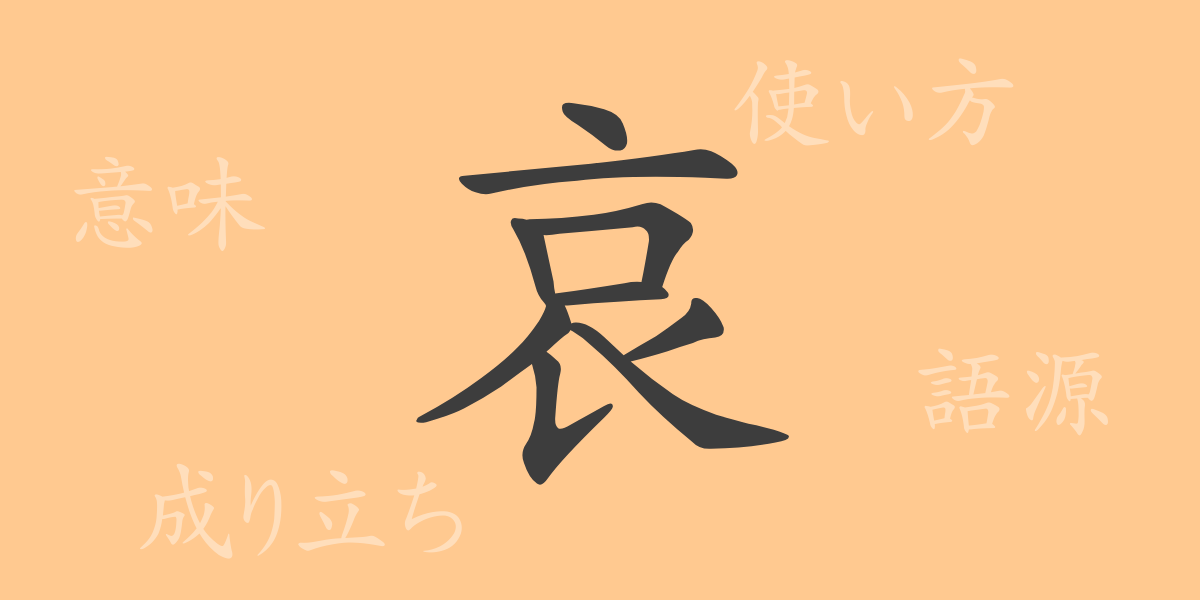“
Each commonly used Kanji in Japan has a unique history and meaning. ‘哀’ (Ai) is one such character, often used to express deep emotions. This article delves into the origins, meanings, uses, readings, and related phrases and idioms of ‘哀’ (Ai), providing a comprehensive exploration of this emotive character.
Origins of 哀 (Ai)
The Kanji ‘哀’ (Ai) originated in ancient China. It is composed of two parts: ‘衣’ (I, clothing) and ‘口’ (Kuchi, mouth). The combination of these elements suggests the act of “”wearing clothes and lamenting,”” giving rise to its meanings of ‘sorrow’ and ‘compassion.’
Meaning and Usage of 哀 (Ai)
The Kanji ‘哀’ (Ai) conveys meanings such as ‘to mourn,’ ‘sorrow,’ ‘to pity,’ and ‘compassion.’ It is primarily used to express the deep emotions felt towards something lost or a sad event. It also appears in poetic expressions like ‘哀れ’ (Awa-re) and ‘哀愁’ (Aishū), often found in literary works.
Readings, Stroke Count, and Radical of 哀 (Ai)
Basic information about the Kanji ‘哀’ (Ai) is as follows:
- Readings: On’yomi is ‘Ai’, Kun’yomi are ‘Aware’ and ‘Awa-remu’.
- Stroke Count: 9 strokes
- Radical: kuchihen, mouth radical
Phrases and Idioms using 哀 (Ai)
Some phrases and idioms that include ‘哀’ (Ai) are:
- 哀愁 (Aishū): A sense of deep sadness or poignancy.
- 哀悼 (Aitō): Mourning the dead and comforting their souls.
- 哀哭 (Aikoku): To lament or wail in sorrow.
- 哀れむ (Awaremu): To sympathize deeply with someone’s misfortune or suffering.
- 哀れみの情 (Awaremi no jou): A deep feeling of sympathy for someone’s misfortune or suffering.
These expressions enrich the portrayal of people’s emotions in everyday life.
Summary of 哀 (Ai)
The Kanji ‘哀’ (Ai) is an important character used to express profound human emotions. From its origins, it has been used to convey feelings of sadness and compassion. Additionally, phrases and idioms containing ‘哀’ (Ai) demonstrate the rich expressiveness of the Japanese language. Understanding this character allows a deeper appreciation of the depth of human emotions and the power of words.
“

























